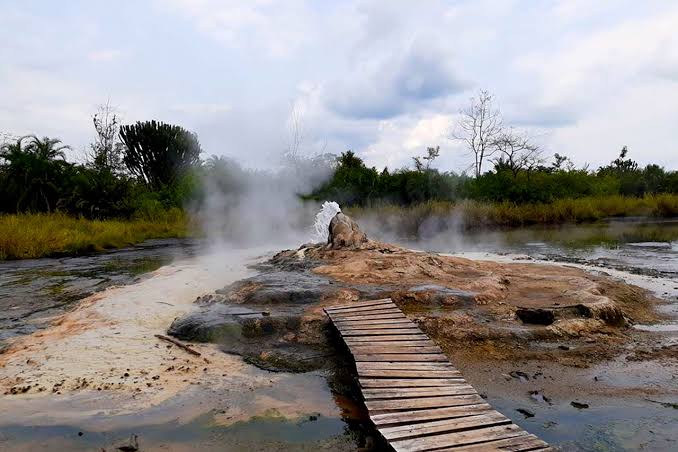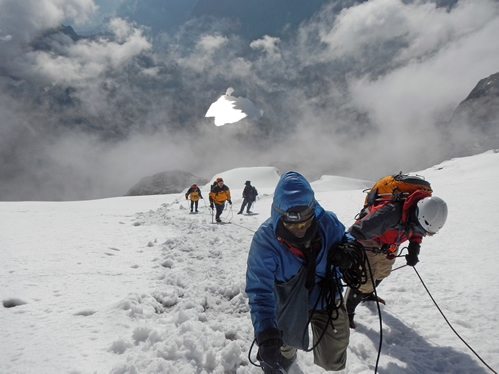A trip to Africa seems to be on every traveler's wish list. For good reason! With amazing wildlife, interesting cultures and all kinds of landscapes, Africa has no shortage of amazing sights and things to do.
Planning a trip to Africa is fun, but it can also be a bit tricky. Africa can be a tricky place to visit, with many remote locations, logistical details to plan for, and endless destination choices.
We’ve gathered top tips for planning an Africa trip in 2023.
Read on to learn more!

Top African destinations to visit.
Africa offers something for all, from safaris to ruins.
If your goal is an African safari, you can choose between East Africa and South Africa. East Africa offers some of the continent’s most dazzling landscapes and abundant wildlife. Cape Town’s cosmopolitan culture, beautiful wine region and beautiful surroundings make South Africa is ideal for inclusive experiences.
Some of the most famous places in East Africa are Tanzania, Kenya, Rwanda and Uganda. From South Africa you can travel to South Africa, Botswana, Zambia, Zimbabwe or Namibia.
History lovers should go to Egypt. There they can see the historic Pyramids. One of the quality tours in Africa. For great beaches, head to Zanzibar on the threshold of the Indian Ocean. Cape Town in South Africa is another top destination with beautiful beaches, great hiking trails and stunning scenery.

Where to go for the first time in Africa?
There are several destination options for first-time visitors to Africa. Uganda, Rwanda, South Africa, Morocco, Botswana and Tanzania are great destinations for first-time travelers.
But most importantly, you should visit only one or two countries at a time. If you try to squeeze too much, you’ll be rushed and overwhelmed.
How long should you plan a trip to Africa for?
Africa has so much to see and do no matter where you are! For several reasons, we recommend staying for at least 8 days (excluding flight time), if not longer.
First of all, depending on where you are coming from, the jet lag can be awful, so your body may need a few days to recover.
Secondly, you want to give yourself enough time to see and do everything in the area that you visit. It’s never fun to feel rushed, so planning a more extended trip can help with this.

What do I need for a trip to Africa?
Besides all of your usual trip necessities, like clothing and toiletries, there are a few different must-haves when traveling in Africa:
- Wet wipes: Some places don’t have running water, so wet wipes will ensure that your hands stay clean.
- Sunscreen: The African sun is harsh; bring sunscreen to prevent a burn.
- First aid kit: If you get any cuts or need any pain relievers, this will keep you covered.
- Headlamp or flashlight: You will want this for getting around at night.
- Bug spray: African bugs are like no other!
- Hiking boots: No matter where you go in Africa, you are likely to do a lot of walking. A good pair of shoes will keep your feet happy.
- Refillable water bottle: This is great for long safari days or sightseeing so that you don’t have to keep buying plastic water bottles.
Steps to Plan an African Safari Trip
Decide on your destination
Africa is a huge continent! Africa is home to more than 50 countries and offers a wide variety of cultures, landscapes and tourist attractions. You can go on a beach vacation, safari or historical tour. The first step is to figure out the type of vacation you want and which country best suits the needs of your family or travel group.
- Decide when to visit
Most African countries have their optimal time of year to visit, so once you’ve decided on a destination, decide what time of year you want to go. If you’re going on a safari, the dry season is usually the best time to visit. But if you’re going to go to the desert, you’ll want to go in the winter.
- Book your accommodation
Before booking, decide whether you want to use a travel agent or plan your own vacation. Both have their pros and cons, but if you use an agent, you should contact your agent at least one year in advance of your trip. They can help arrange hotels, travel and other details. If you book your trip yourself, research hotels, tours, and attractions.
- Book your flight
Book your plane ticket as soon as possible to get the best price. Flights to Africa are expensive and can sell out quickly, so plan ahead. If you have travel points or miles, use them now!
- Get travel insurance
Make sure your base is insured by purchasing travel insurance. Many people say that travel insurance is a waste of money, but African travel is not. Flights in Africa are often canceled without notice, and public hospitals are not the best place to get the care you need if you need emergency medical care.
- Check your visa requirements
A few months before departure, check if you need a visa to enter your destination country. This is determined by nationality, not country of residence. Please do not check this information on travel blogs. Look at real government agencies, as these requirements are ever-changing.
- Arrange travel medication
Visit your doctor or travel clinic two months before travel to find out what vaccinations you will need at your destination. Vaccines against hepatitis A, typhoid and rabies are generally required, although this varies by country. Malaria is also common in sub-Saharan Africa, so talk to your doctor about preventive measures.
- Buy your travel equipment
Depending on your destination, most will require a mosquito net, first aid kit and sturdy hiking boots. If you’re going on a safari, you’ll need good binoculars and a good camera. Many parts of Africa are hot during the day and cool in the evening, so bring a variety of clothing and clothing.
- Make a money plan
Carrying tons of cash is not safe in many countries, but ATMs may be few and far between in some African countries. Your best bet is to have enough currency on arrival to get you to the next major city, then withdraw more cash with your debit or ATM card. Be sure to notify your bank and credit card company that you will be traveling. If you don’t know, we may cancel or freeze your card due to suspected fraud.
- Research your destination
Reading and researching your destination can expand your local knowledge, tell you about the amazing sights you can see, and get you excited before your trip! It’s also a good idea to get an idiom book because knowing a few phrases in your native language can go a long way.
FOR MORE OF THIS
Email: info@noworkstours.com
Facebook: https://www.facebook.com/noworkstoursandtravel
Website: https://noworkstours.com/
OR
Call on +256 200 903 438, WhatsApp on +256 762 802 215,
WRITEN BY: KUZANYA JOHN BOSCO











